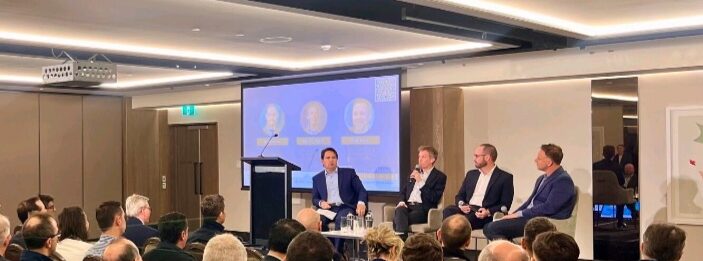Can Offshore Wind Secure Auckland’s Energy Future?
The discussion on the role of offshore wind in future-proofing Auckland’s energy security took place on Wednesday, 25th September, at Cordis Auckland. The event highlighted how offshore wind presented a significant opportunity for New Zealand to advance large-scale renewable energy development, meeting both existing and future demand driven by the transition to electrification. By enabling substantial renewable energy generation in the North Island, independent of the Cook Strait HVDC cable, it contributed to enhancing the resilience of the electricity system.
The Taranaki Offshore Partnership (TOP), a collaboration between the NZ Super Fund and Copenhagen Infrastructure Partners, had been exploring the feasibility of a 1GW offshore wind farm in the South Taranaki Bight, with the possibility of additional sites in the future. With their extensive global experience in offshore wind development and strong financial backing, they were ideally positioned to spearhead the development of offshore wind in New Zealand.
The panel discussion featured representatives from TOP and the NZ Super Fund, who explored the opportunities offshore wind presented, the benefits for Auckland and the broader economy, and the necessary steps to make it a reality.Mr Simon Bridges expertly guided the conversation, ensuring a comprehensive and engaging discussion.
Developing a cohesive energy strategy was emphasized as crucial for providing greater certainty for investors and enhancing efficiency, particularly in aligning offshore wind projects with those in Australia. It was noted that electricity is a public good, and relying solely on the market to “keep the lights on” may not ensure energy security. There is an increasing need for the government to redefine its leadership and accountability in the sector.
The panelists highlighted the challenges of depending exclusively on established technologies like onshore wind and solar, which might not be sufficient to meet future energy needs. Although the consenting processes are becoming more efficient, issues such as public resistance and limited resources could hinder project progress. This could result in a persistent imbalance between energy supply and demand, potentially leading to prolonged high electricity prices.
The panelists included:
- Giacomo Caleffi, Director of Copenhagen Offshore Partners, leading the Taranaki Offshore Partnership
- Will Goodwin, Head of Direct Investments at the New Zealand Super Fund
- Mark Toner, Chief Public Policy & Regulatory Officer at Vector Limited

